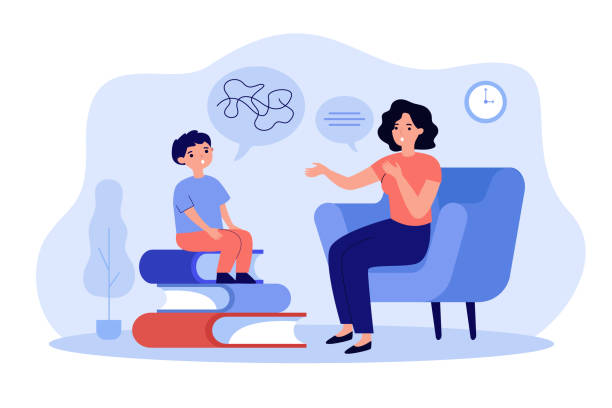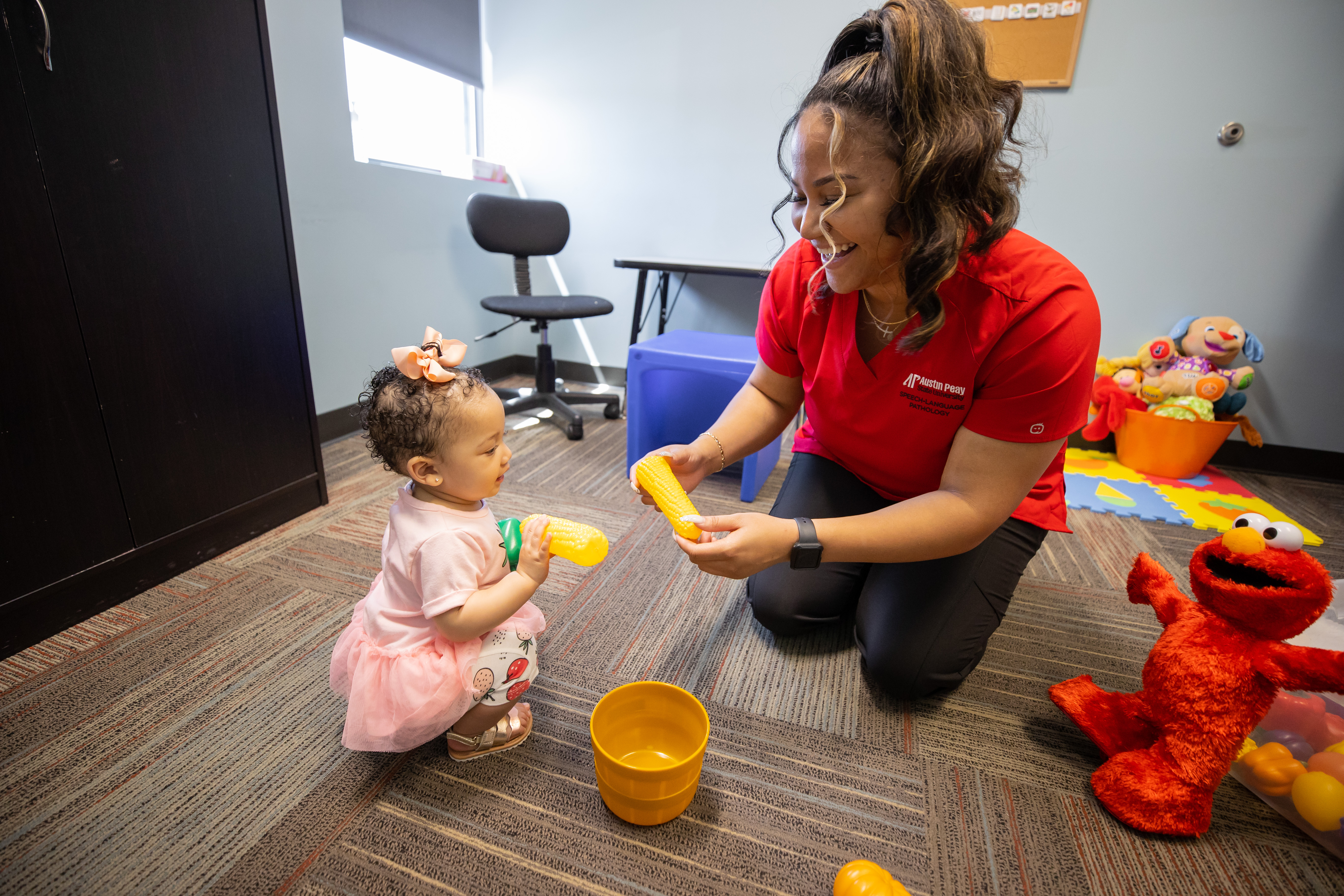Common Issues a Speech Pathologist Can Help Resolve Quickly
Common Issues a Speech Pathologist Can Help Resolve Quickly
Blog Article
How a Speech Pathologist Can Assist Improve Communication Skills
Efficient interaction is a cornerstone of specialist and personal success, yet several individuals deal with challenges that hinder their capacity to express themselves clearly. A speech pathologist is outfitted to deal with these barriers through targeted evaluation and treatment strategies tailored per individual's needs. By using evidence-based healing techniques, they not only function to boost speech and language disorders but likewise improve total communicative competence. Recognizing the multifaceted role of a speech pathologist reveals just how their competence can transform lives, inviting a better exam of the particular methods and outcomes connected with their technique.
Recognizing Communication Disorders
Understanding interaction problems is essential for identifying how they influence individuals' capacity to reveal themselves and involve with others. Communication problems include a variety of problems that impact speech, language, and social interaction, frequently preventing effective interaction. These disorders can arise from numerous aspects, consisting of neurological conditions, developmental hold-ups, physical disabilities, or mental concerns.
Speech conditions might materialize as difficulties in fluency, voice, or articulation manufacturing, impacting how words are obvious or talked. Language disorders, on the various other hand, involve challenges in understanding or utilizing language, which can hinder both non-verbal and spoken communication. Social interaction disorders are characterized by problems in the pragmatic facets of communication, such as taking kip down conversation or understanding social signs.
The repercussions of communication disorders are extensive, influencing not just the individual's capacity to share ideas and feelings but also their social partnerships, educational possibilities, and overall lifestyle. Awareness of these conditions can foster compassion and support, encouraging reliable strategies for communication and engagement. Understanding the intricacies of interaction conditions is an important action towards promoting inclusivity and addressing the requirements of those impacted.
Duty of a Speech Pathologist
Speech pathologists frequently play a crucial duty in identifying and treating communication disorders, utilizing an array of evidence-based strategies tailored per person's demands. These experts deal with people throughout the lifespan, from youngsters with speech hold-ups to adults recovering from strokes or stressful brain injuries. Their know-how encompasses a selection of interaction problems, including articulation, voice, language, and fluency problems.
In therapeutic settings, speech pathologists use organized interventions developed to enhance communication abilities. They might carry out techniques such as speech workouts, language video games, and social interaction training to help with enhancements in receptive and expressive language capabilities. Speech Pathologist. In addition, they educate customers and their households concerning efficient interaction methods and flexible approaches to browse everyday communications
Beyond direct therapy, speech pathologists work together with various other healthcare teachers, caretakers, and experts to ensure a comprehensive technique to treatment. They support for clients by giving resources and assistance, making it possible for people to attain their interaction goals and improve their general quality of life. As professionals in the area, speech pathologists are vital in cultivating efficient communication, promoting self-reliance, and improving social participation for those with communication difficulties.
Assessment and Diagnosis Process
The evaluation and medical diagnosis process conducted by speech pathologists generally includes an extensive assessment to identify communication conditions properly. This procedure begins with a detailed case history, read the article where the clinician collects significant information concerning the person's clinical, academic, and developing history. Comprehending the context of the person's communication problems is crucial for an exact medical diagnosis.
Following the medical history, speech pathologists utilize informal assessments and standard tests to assess numerous aspects of interaction, consisting of speech sound production, language comprehension, meaningful language, and social interaction skills. These evaluations are tailored to the person's age and specific issues, providing useful data for analysis.
Observation is likewise an important part of the analysis procedure, as it enables the medical professional to see firsthand how the specific communicates in natural settings. Furthermore, interviews with relative and educators can give insight right into the individual's communication difficulties across different settings.
Once the examination is total, the speech pathologist manufactures the findings to establish a diagnosis and advise appropriate treatments. This thorough analysis process makes sure that individuals obtain targeted assistance tailored to their unique communication requirements, laying the structure for effective restorative strategies.
Healing Strategies and Methods
Many healing methods and techniques are utilized by speech pathologists to resolve a range of interaction problems successfully. One commonly used method is articulation treatment, which concentrates on dealing with speech seems through repeating and visual cues. This method is particularly beneficial for people with speech sound conditions.
An additional efficient approach is language intervention, which boosts both receptive and meaningful language skills. This may involve interactive activities that promote vocabulary advancement, syntax understanding, and conversational skills. Additionally, speech pathologists typically make use of social skills training to boost practical language capabilities, enabling people to navigate social communications much more efficiently.
Fluency link shaping and stuttering alteration strategies are particularly developed to assist those experiencing fluency conditions. These strategies help clients create smoother speech patterns and manage the physical and psychological elements of stuttering.
In addition, different and augmentative interaction (AAC) systems are employed for individuals with extreme communication disabilities. These systems, which can include motions, signs, or digital devices, give essential support for effective communication.
Benefits of Speech Treatment

Additionally, speech treatment can assist in developing vital listening and understanding abilities, cultivating better interaction in conversations. People with cognitive-communication disorders can additionally benefit, as therapy concentrates on strengthening memory and analytic abilities, crucial for reliable interaction.
An additional important aspect is the emotional assistance provided during treatment sessions. Speech pathologists create a risk-free atmosphere, motivating people to get over anxiousness and aggravation pertaining to their interaction issues. This support can lead to boosted self-confidence and overall mental wellness.
Additionally, very early intervention with speech therapy can prevent further difficulties, guaranteeing that individuals reach their complete communicative capacity. Generally, the benefits of speech treatment extend beyond mere speech renovation, favorably impacting numerous dimensions of life for those impacted by interaction troubles.
Conclusion
In summary, speech pathologists play an essential duty in dealing with interaction disorders with evaluation, medical diagnosis, and tailored therapeutic treatments. By using evidence-based techniques, these professionals boost individuals' speech and language abilities, promoting improved quality, fluency, and social interaction skills. The advantages of very early treatment highlight the value of seeking aid from speech pathologists, as their experience can significantly enhance communicative potential, inevitably resulting in view it now greater success in both professional and individual spheres.

Speech pathologists often play a crucial function in diagnosing and treating communication conditions, utilizing an array of evidence-based techniques tailored to each individual's requirements. As specialists in the field, speech pathologists are necessary in cultivating reliable communication, advertising freedom, and enhancing social participation for those with interaction obstacles.

Report this page